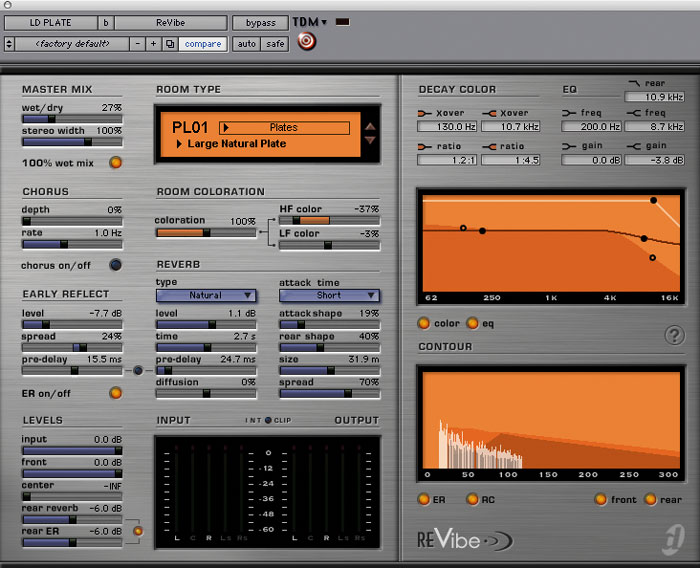The reverb I want is, for it to sound like it is in the same room, just a few inches of a further distance away. Which reverb plug in, changes distance only, and not the type of room the voice is in?
What do you think "distance" is, how do you think we hear/perceive distance?
Increasing the amount of distance between the subject and the mic means the mic picks up less of the subject relative to the background noise. That background noise includes the reflections/reverb of the subject, it's the interaction of those reflections/reverb with the direct sound (of the subject) which gives us the sense of distance. In other words, you cannot only change "distance", you have to change the reverb as well! The skill is in manipulating the parameters of the reverb plugin so that the reverb ("type of room") it's creating sounds the same as the reverb you recorded when the subject was further from the mic, thereby giving the impression that there is no change in the type of room, only a change in the distance.
Furthermore, that interaction of the reflections with the direct sound when you recorded doesn't just give you the same direct sound + reverb, it changes (modulates) the frequency content of the direct sound itself, which is why you'll probably need to apply EQ as well. Depending on exactly what you recorded when the subject was further from the mic, the acoustics of your recording room and how much of it you captured, you may find that much of the "matching" is achieved with just EQ and only a small amount of added reflections is necessary, which can sometimes best be achieved with just a simple delay plugin rather than a reverb plugin.
TV/Film audio post pros (ADR, dialogue or re-recording mixers) are used to having to do this sort of matching exercise all the time and would likely get a fairly decent match within just a few minutes. BTW, this is one of the required, different skill-sets between music producers/composers and Film/TV audio post pros. You might be lucky and just stumble upon an appropriate combination of EQ and reverb/delay settings but the odds are against you, even more so if you only have a reverb plugin with limited configurability. Here for example is one of the reverb plugins which I most commonly use for matching purposes:
Get the narrator back in and record her again or, if she's not available, get a new narrator. That would almost certainly be both your quickest and best option!!
G



